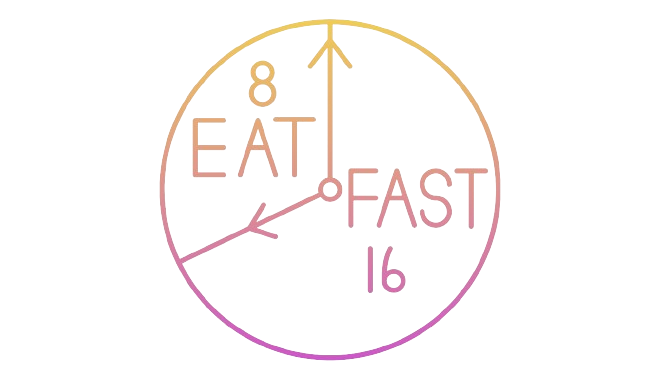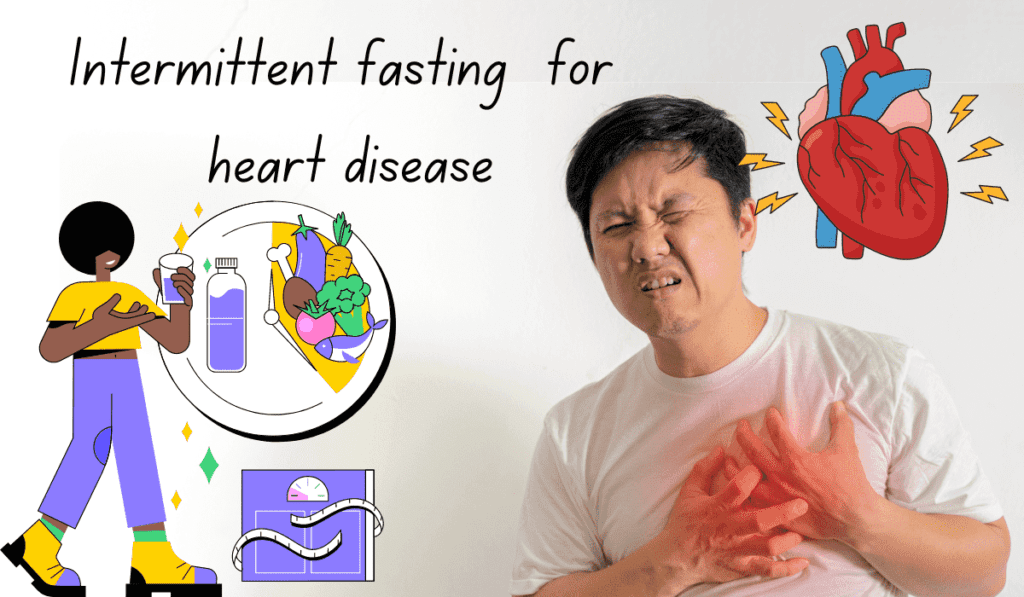Intermittent fasting may not be suitable for pregnant or breastfeeding women and Certain medical conditions
Sure, here are the medical conditions
Panic Attacks, Anxiety, Cancer, Diabetes, Metabolic, Diarrhea, Disorders Eating, Heart disease, High blood pressure (hypertension), Chronic kidney disease, Liver disease, Gastrointestinal disorders Mental health disorders
may not align well with fasting and require professional guidance. Children, adolescents, and those who are underweight or have low BMI should avoid IF to ensure proper growth and health.

Impact of Time-Restricted Eating on Cardiovascular Health
Research Highlights
Conducted by researchers from the Shanghai Jiao Tong University School of Medicine, this study delved into data gathered from the National Health and Nutrition Examination Surveys (NHANES) spanning from 2003 to 2018. Key findings from the analysis included:
- Participants who confined their daily food intake to less than 8 hours faced a notably elevated risk of cardiovascular mortality.
- Among individuals grappling with pre-existing cardiovascular disease, those adhering to an eating duration of less than 8 hours experienced a substantial increase in the risk of death from heart disease or stroke.
- Notably, time-restricted eating failed to exhibit an overall reduction in the risk of death from any cause, suggesting a nuanced interplay between eating patterns and health outcomes.
Link Between 8-Hour Time-Restricted Eating and Cardiovascular Health
Recent research presented at the American Heart Association’s scientific sessions delves into the impact of 8-hour time-restricted eating on cardiovascular health. Conducted by experts from the Shanghai Jiao Tong University School of Medicine, the study analyzed data from over 20,000 U.S. adults.
Key findings indicate that individuals restricting their daily food intake to less than 8 hours faced a 91% higher risk of cardiovascular death compared to those with a longer eating window of 12-16 hours. This risk increase was observed even among those with pre-existing heart disease or cancer.
These insights shed light on the potential risks associated with time-restricted eating and highlight the importance of further research to understand its long-term effects on cardiovascular health.
Analyzing 91% Higher Risk of Cardiovascular Death
Analyzing the risks associated with cardiovascular death, particularly in the context of Time-Restricted Eating (TRE), requires a thorough examination of the available scientific literature and epidemiological studies.
One notable study that sheds light on this topic is the research published in the Journal of the American Medical Association (JAMA) Cardiology in 2019.
In this study, researchers analyzed data from the National Health and Nutrition Examination Survey (NHANES) involving over 14,000 adults in the United States. They investigated the association between the duration of nightly fasting and the risk of cardiovascular mortality over a median follow-up period of 23 years.
The findings revealed a significant correlation between shorter fasting durations (less than 10-13 hours per night) and an increased risk of cardiovascular death.
Specifically, individuals who fasted for less than 10 hours per night exhibited a 34% higher risk of cardiovascular mortality compared to those who fasted for 13 hours or more. Moreover, those with fasting durations shorter than 12 hours per night had a 21% higher risk of all-cause mortality.
These findings underscore the importance of considering the duration of nightly fasting, a key component of time-restricted eating, in relation to cardiovascular health outcomes.
Risks and Benefit of Intermittent Fasting for Heart Disease
Benefits
- Weight Management: Intermittent fasting aids in weight loss by promoting calorie restriction and improving metabolic flexibility, essential for maintaining a healthy weight.
- Improved Insulin Sensitivity: Fasting periods enhance insulin sensitivity, which helps in better blood sugar control, lowering the risk of type 2 diabetes, a significant contributor to heart disease.
- Reduced Inflammation: Intermittent fasting reduces markers of inflammation in the body, a key factor in the development of heart disease.
- Enhanced Heart Health Markers: Studies indicate improvements in blood pressure, cholesterol levels, and triglycerides with intermittent fasting, contributing to overall heart health.
- Promotion of Autophagy: Fasting stimulates autophagy, the body’s cellular repair process, potentially reducing the risk of heart disease and other age-related conditions.
Risks and Considerations
- Nutritional Deficiencies: Inadequate nutrient intake during fasting periods may lead to deficiencies, emphasizing the need for a balanced diet.
- Potential for Disordered Eating: Intermittent fasting might exacerbate disordered eating behaviors, requiring careful consideration, especially for individuals with a history of eating disorders.
- Impact on Blood Sugar: Fasting can affect blood sugar levels, necessitating monitoring and medication adjustments for individuals with diabetes or metabolic conditions.
- Adverse Effects: Some individuals may experience temporary side effects like fatigue or dizziness during fasting, requiring adjustments to the fasting schedule or dietary intake.
- Individual Variability: The effectiveness and safety of intermittent fasting can vary based on factors like age, gender, health conditions, and lifestyle habits, emphasizing the importance of personalized approaches and professional guidance.
Is Intermittent Fasting Right for You?
Studies have shown that intermittent fasting can lead to improvements in insulin sensitivity, blood lipid profiles, blood pressure regulation, and even reductions in markers of inflammation—all of which are critical factors in cardiovascular disease prevention.
For instance, a randomized controlled trial published in the New England Journal of Medicine demonstrated that intermittent fasting was associated with significant reductions in body weight, blood pressure, and LDL cholesterol levels. Another study, published in Circulation Research, highlighted the potential of intermittent fasting to enhance heart function and improve overall cardiovascular resilience.
Mechanisms of Action:
The effects of intermittent fasting on heart health are thought to be mediated by various mechanisms. During fasting periods, the body undergoes metabolic shifts, including increased autophagy (cellular cleansing), enhanced mitochondrial function, and reduced oxidative stress—all of which may contribute to cardiovascular protection.
Moreover, intermittent fasting induces changes in hormone levels, such as increased production of adiponectin and brain-derived neurotrophic factor (BDNF), which have been associated with improved cardiovascular outcomes. These hormonal changes may promote fat metabolism, regulate blood sugar levels, and enhance brain health, indirectly benefiting heart function.
Common Misconceptions Surrounding intermittent fasting and heart disease
Debunking myths and addressing common misconceptions surrounding intermittent fasting (IF) and its impact on heart health is crucial for providing accurate information to the public. Let’s tackle some of these misconceptions:
Intermittent fasting increases the risk of heart disease
Some people believe that skipping meals or fasting intermittently may lead to nutritional deficiencies or negatively impact heart health.
However, numerous studies have shown that IF, when done correctly and under proper supervision, can actually improve cardiovascular health by reducing risk factors such as inflammation, blood pressure, and cholesterol levels.
Intermittent fasting is unsafe for people with existing heart conditions
While individuals with certain medical conditions should consult with their healthcare provider before starting any fasting regimen, including IF, research indicates that intermittent fasting can be safe and beneficial for many people with heart disease or risk factors such as obesity, hypertension, and high cholesterol.
However, individualized guidance is essential to ensure safety and effectiveness.
Intermittent fasting is a one-size-fits-all approach
Intermittent fasting encompasses various protocols, including alternate-day fasting, time-restricted eating, and modified fasting regimens.
What works for one person may not be suitable for another. It’s important to tailor the fasting approach to individual needs, preferences, and health goals, considering factors like age, sex, activity level, and medical history.

